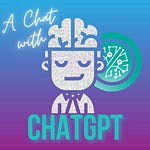The Everyman archetype embodies the common person, representing shared human experiences and universal struggles. This figure appears across cultures as a relatable character who navigates life's challenges with common sense and perseverance. The Everyman reminds us of our shared humanity and the extraordinary potential within ordinary individuals. A modern example that captures this essence is Arthur Dent from "The Hitchhiker's Guide to the Galaxy" - an ordinary man thrust into extraordinary circumstances, embodying the bewilderment and resilience we all might feel when facing the unknown.
In Mesopotamian Mythology, we find the Everyman archetype in Utnapishtim, a central figure in the Epic of Gilgamesh. Utnapishtim was a ordinary man chosen by the god Ea to survive a great flood that was meant to wipe out humanity.
Ea instructed Utnapishtim to build a great boat and fill it with his family and animals. Utnapishtim, despite being an average person with no special powers or divine heritage, followed these instructions meticulously. He faced the skepticism of his neighbors and the enormous task of building the boat with determination.
When the flood came, Utnapishtim's boat rode out the deluge for six days and seven nights. When the waters receded, his boat came to rest on Mount Nisir. Utnapishtim released birds to find land, much like Noah in the later Biblical account.
For his faithfulness and perseverance, Utnapishtim and his wife were granted immortality by the gods. However, even in his immortal state, Utnapishtim retained his everyman qualities. When Gilgamesh, the great hero-king, sought him out for the secret of eternal life, Utnapishtim didn't present himself as a god or a hero. Instead, he shared his story simply and advised Gilgamesh on the value of embracing mortality and living life fully.
Utnapishtim's tale resonates because it shows how an ordinary person, through diligence, common sense, and resilience, can overcome extraordinary challenges and even gain the favor of the gods. His story speaks to the potential within every person to rise to the occasion when faced with adversity.
Applying the Everyman archetype to AI presents fascinating possibilities and potential challenges. An AI imbued with Everyman qualities could serve as a relatable interface between complex technology and everyday users. In customer service, an Everyman AI might communicate in simple, understandable terms, making technology more accessible to a broad audience. In personal assistant applications, it could approach tasks with common sense perseverance, mirroring how an average person might tackle daily challenges.
The potential benefits of Everyman AI are significant. It could help bridge the gap between advanced technology and the average user, making AI less intimidating and more approachable. By embodying common experiences and struggles, an Everyman AI could foster a sense of companionship and understanding, potentially increasing user trust and engagement.
However, we must also consider the potential downsides. There's a risk that in striving for relatability, an Everyman AI might oversimplify complex issues or reinforce mediocrity. It could potentially limit users' growth by not challenging them to expand their understanding or skills. Additionally, the concept of an "average" person varies greatly across cultures and individuals, raising questions about whose experiences the AI would represent.
Striking a balance between relatability and capability, between common sense and specialized knowledge, will be crucial in developing Everyman AI. We must ensure that while being approachable, the AI still encourages growth, learning, and the realization of each individual's potential.
As we contemplate the integration of the Everyman archetype into AI, we must ask ourselves: How can we create AI systems that are relatable and accessible without losing the capacity for growth and innovation? This question challenges us to consider not only the practical applications of AI but also its role in reflecting and shaping our understanding of shared human experiences. What wisdom can the Everyman archetype teach us to help navigate our future with AI?









Share this post